![]() William Golding’s 1954 novel Lord of the Flies is given a rural South American working-class adaptation in the fierce Monos. Instead of dealing with stranded British boys during World War II, Brazilian writer and director Alejandro Landes uses the classic tale of teenagers driven by a political agenda to reveal their true animal nature, and the stunning backdrop lures viewers into the community inhabited by members of a group not unlike the real-life RAFC (Revolutionary Armed Forces of Colombia).
William Golding’s 1954 novel Lord of the Flies is given a rural South American working-class adaptation in the fierce Monos. Instead of dealing with stranded British boys during World War II, Brazilian writer and director Alejandro Landes uses the classic tale of teenagers driven by a political agenda to reveal their true animal nature, and the stunning backdrop lures viewers into the community inhabited by members of a group not unlike the real-life RAFC (Revolutionary Armed Forces of Colombia).
Set on a remote mountain presumably in Colombia, the movie follows a young guerrilla group of male and female soldiers, known solely as the Organization, as they go on their daily military routine, indulging in psychedelic mushrooms and youthful romance. Bearing names such as Rambo, Smurf, Wolf, Boom Boom, and Bigfoot (played wonderfully by star in the making Moisés Arias), the crew, armed with assault rifles, watches over an American hostage, engineer Sara Watson (Julianne Nicholson, who strongly succeeds in both the physical and emotional demands of the role). They also partake in military training rituals, spoon-fed by a diminutive man who serves as their superior.
After an ambush drives the squadron into the jungle and the Doctora escapes, both the mission and the intricate bonds between this “family” come apart. What follows is a dog-eat-dog story of survival with enough twists and emotions to make the film an extraordinary dark ride. One by one, the teenagers’ beliefs are stripped in a hallucinatory test of good, evil, solidarity, and treachery.
Although it is never implied, Monos is a raw depiction of the Marxist-Leninist political force of rebels known as the RAFC, FARC in Spanish. It was inspired by the Cuban Revolution of the 1950s, and it rose in 1964 to fight the huge levels of social inequality in Colombia. Nicholson’s character could very well be a representation of the anger the FARC felt toward the intervention of the United States in the fight against them and a stand-in for a famed political prisoner, the Colombian-French politician Íngrid Betancourt. Also at play are the nicknames given to each other by themselves and their informally titled troop, which all act as mirrors to actual events.
Landes clearly has a fascination with the way injustices have been handled by his neighboring countries in South America. Coming off from his documentary about unionized Bolivian farm workers in Cocaleros (2007) and Porfirio (2011), the true story of a Colombian who became handicapped after a failed police operation, Monos feels like the magnum opus Landes has been preparing for in a span of 12 years and a culmination of his passion.
What truly lies at the heart of the movie is how, beneath all the violence, there’s an empathetic message about the captors as young kids who are still growing up. Landes manages to evoke just how much their lives have been negatively affected, many of them being forced to pursue this path, while offering a unique glimpse into the cruel consequences of civil war. It’s also a meditation on future generations and the state of Colombia as a whole. Cute children, or Monos, a term of affection for the young in Spanish, have clearly been turned to their most primitive, spirited, trigger-happy monkeys (monos as well).
Also thrown into this powerful brew is a strong and effective sound mix á la Apocalypse Now (1979), another film based on an anti-imperialistic novel, Joseph Conrad’s Heart of Darkness, about a Belgian gone wild while effectively becoming a colonizer in the African Congo—imperialism was one of the vital causes that sparked the rise of RAFC.
The extended wide shots of the encompassing cinematography and the suspenseful and unpredictable editing is enough to transform any spectator with a slight interest in contemporary events into a firsthand witness.


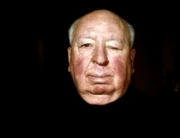
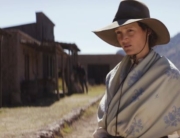
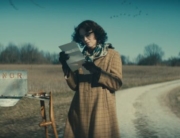
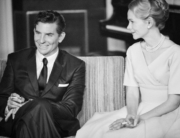
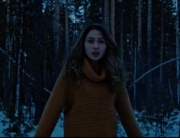
Leave A Comment